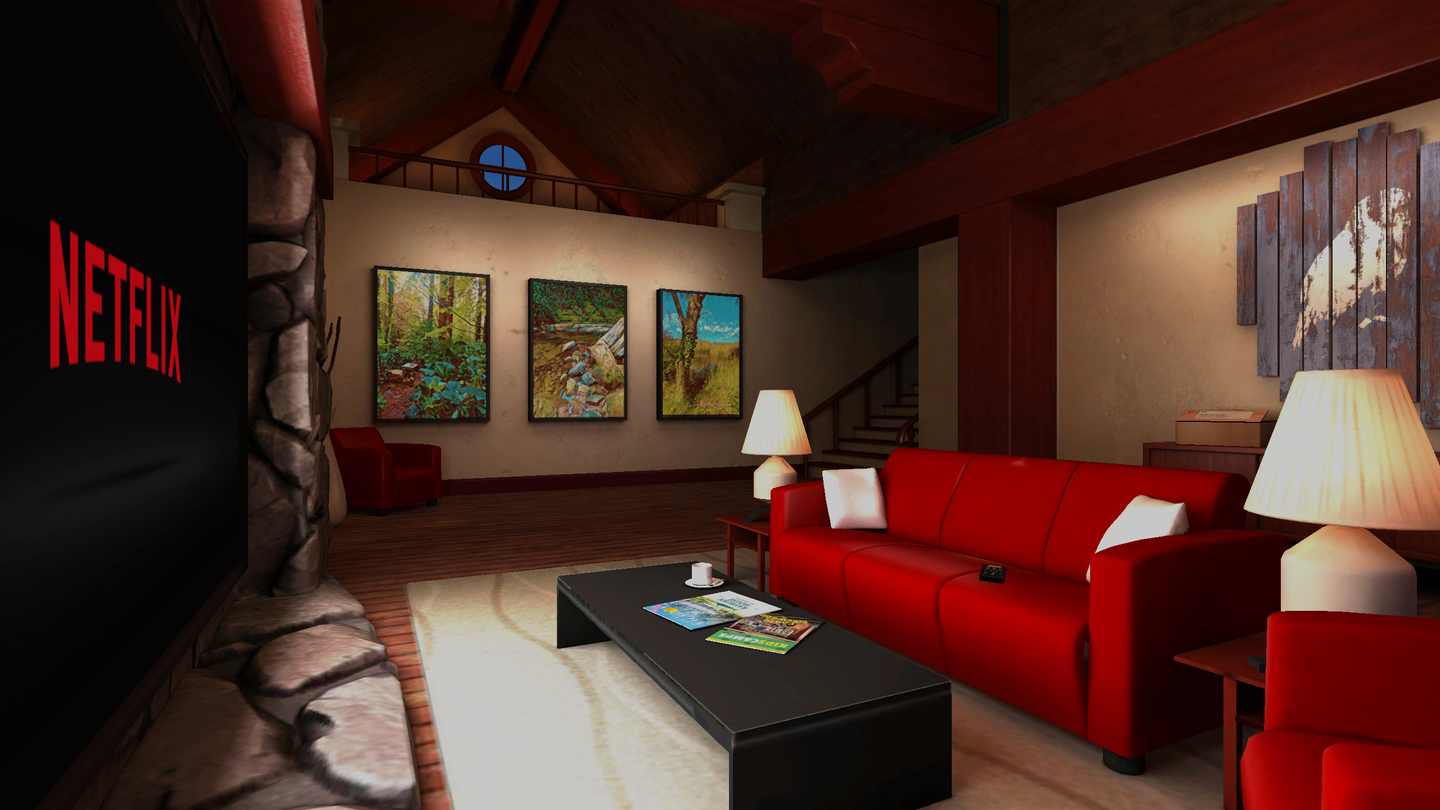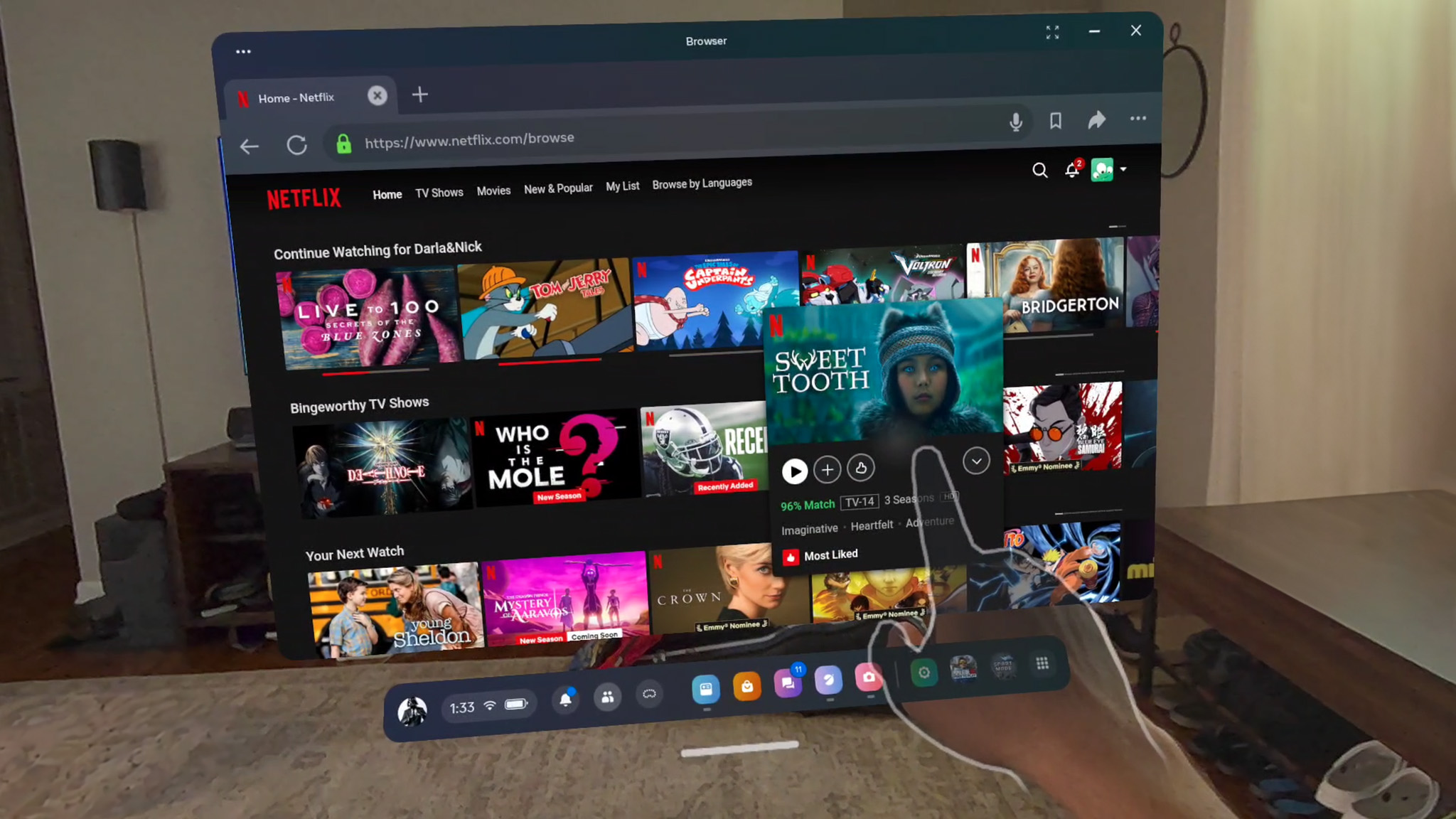

In his weekly column, Android Central Senior Content Producer Nick Sutrich delves into all things VR, from new hardware to new games, upcoming technologies, and so much more.
Back in 2015, Samsung and Netflix launched an app for the Gear VR which, at the time, was the most advanced standalone VR headset available. When Jen Karner wrote about it for us back on October 13, 2015, she remarked that "the experience is surreal to say the least."
However, the lovely little living room that John Carmack himself helped develop back in 2015 didn't age so well. The app received very few updates throughout the years, even after being ported to the original Oculus Quest in 2019. Watching 480p videos with no capability to download anything isn't exactly impressive in 2024.
But instead of updating the app or even completely rewriting it, the official app now lets users know that "The Netflix app is no longer available" and that they should "visit www.netflix.com in the Meta Quest Browser to experience Netflix" instead. Given that Netflix support was just added to the browser in June, it's a little surprising to see Meta move this quickly, but if you look at the larger picture, things start to make a little more sense.
Meta has been working to make the Quest experience simpler and more cohesive. Making major services like Netflix work perfectly in the built-in web browser just makes sense for a spatial computing device, especially when we're already used to opening a new browser tab on our computers to view whatever we want.
Two steps forward, one step back

Being so extremely outdated, the Netflix app on Quest has been more of a problem than a solution lately. Aside from the low-res 480p video quality I mentioned before, the app lacked a proper mixed reality mode and several other quality-of-life features that Meta Quest 3 owners have come to expect. Sure, that living room you sat in—pictured above—was cozy and comfy, but more options are always better.
Now, by opening the Quest browser and navigating to the Netflix website, you can easily scroll through the entire content library and watch anything you want in the highest streaming quality available to your subscription tier. Not only that, but the experience is truly gorgeous with the recent upgrades to mixed reality quality on the headset.
I'd show you a video of how it works, but unfortunately, DRM prevents me from doing so. The beautiful, giant display is completely missing in the video for copyright reasons, but at least the menu of available titles can be shown:

Running Netflix in passthrough mode is the key to getting me to use it more often. It's just like using a massive TV—seriously, it's got to be at least three times the size of my 65-inch TV on the wall—except I can place it anywhere I want. While the Netflix app was really cool for its time, I'd rather have the flexibility of moving the display around as I need.
Because of this, I can do chores with my headset on while still enjoying the latest episode of my favorite VR podcast on YouTube or switch over to Netflix to binge the latest show without having to crane my neck or stay in one room. It also makes it easy to enjoy what I want if my son is playing games with friends and hogging the TV.
If I just want full immersion, I can disable passthrough and change up the home environment at will. Considering just how many different home environments are available these days, there are a lot more ways to watch a movie without staring at the same four walls around you the entire time.
Meta has put in some seriously fantastic work on fixing the Quest's convoluted UI over the past few months, including enabling substantially better multitasking. Using the built-in UI options is far preferable to a dedicated app because it ensures that all experiences look and behave the same, no matter what streaming service you might want to use.
Using Netflix in the browser has a lot more features and is more modern than the app used to be, but there's still no way to download videos for offline viewing.
However, using Netflix in the browser still suffers from one major problem: there's still no way to download videos offline, so you can watch them on an airplane or somewhere else where Wi-Fi is scarce. It's one of the many reasons I don't find the Quest's airplane mode very useful yet.
For that, you'll need to download something like Moon VR Player—which really is a brilliant experience with unparalleled mixed reality enhancements—and somehow find video files to download to your Quest. The obvious solution would be to get one of the best NAS setups and rip all your old DVDs and Blu-ray movies to your home server, but I'm guessing that most people probably don't have a good way to do this these days.
While moving Netflix to the Quest browser opens up many possibilities and makes it easier to switch between services at will—it's much quicker to switch tabs in the browser than swap between full-screen apps—Meta seriously needs to work on a universal way to download and save videos for offline viewing if these features are to reach their full potential.
After all, I imagine one of the biggest use cases for viewing Netflix on a headset is on a plane or train where Wi-Fi may be scarce or unreliable. That, or maybe we're becoming a little too antisocial for our own good.







